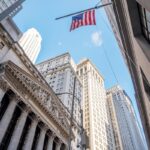The protracted legal battle between Ripple Labs and the U.S. Securities and Exchange Commission (SEC) has reached a significant conclusion, with a surprising twist: retail investors, referred to as the “XRP Army,” played a crucial role in influencing the outcome. Their tireless online advocacy, extensive research efforts, and direct legal filings helped position Ripple favorably, a development few anticipated at the outset of the litigation.
In a pivotal ruling, Judge Analisa Torres acknowledged the contributions of XRP holders, highlighting that their voices had substantial implications in the judicial process. Importantly, she referenced the various filings, affidavits, and arguments presented by retail investors. Notably, crypto attorney John Deaton, who acted on behalf of the XRP community through an amicus brief, emphasized the community’s influence, stating that anyone who underplays their involvement is either misinformed or deliberately misleading.
The court’s recognition reaffirmed the perception that XRP is not merely a security controlled by institutional players but rather a token widely adopted by everyday consumers. This classification was critical in the ruling that determined XRP’s status when transacted on exchanges.
Ripple’s internal team expressed gratitude for the grassroots involvement of the community, suggesting that the XRP Army’s unpaid research added genuine value to the case. Deborah McCrimmon, Ripple’s deputy general counsel, noted that the community’s digging into past SEC speeches and blockchain policy documents provided insights that would have otherwise cost a significant sum had they been sourced through professional legal channels.
A core part of Ripple’s defense focused on the notion of “fair notice,” arguing that the SEC had not clearly communicated its regulations. The diligent work of XRP supporters contributed to this narrative, emphasizing the unexpected shifts in regulatory stances.
The legal proceedings have not only been prolonged but have also brought considerable volatility to XRP’s market price. Initially sued in December 2020 for allegedly conducting unregistered securities sales, the case meandered through various legal phases until Judge Torres issued a mixed ruling in 2023 that offered Ripple a measure of relief. By August of the same year, both parties had decided to withdraw their appeals.
The market reacted enthusiastically to the 2023 ruling, with XRP experiencing a 72% surge immediately afterward. In July 2025, the token reached an all-time high of $3.65 before stabilizing around $2.82. While XRP is now seen as a validated asset from a legal standpoint, its inherent volatility persists.
For years, the XRP Army faced skepticism, often dismissed as simply a vocal group on social media. However, the outcome of the Ripple case serves as a testament to the power of grassroots activism within the crypto realm. Their efforts underscore a growing reality: retail investors can indeed influence significant legal outcomes, demonstrating that organized community efforts may have far-reaching implications in the regulatory landscape of digital assets.
At the time of reporting, XRP was trading at approximately $2.82.







